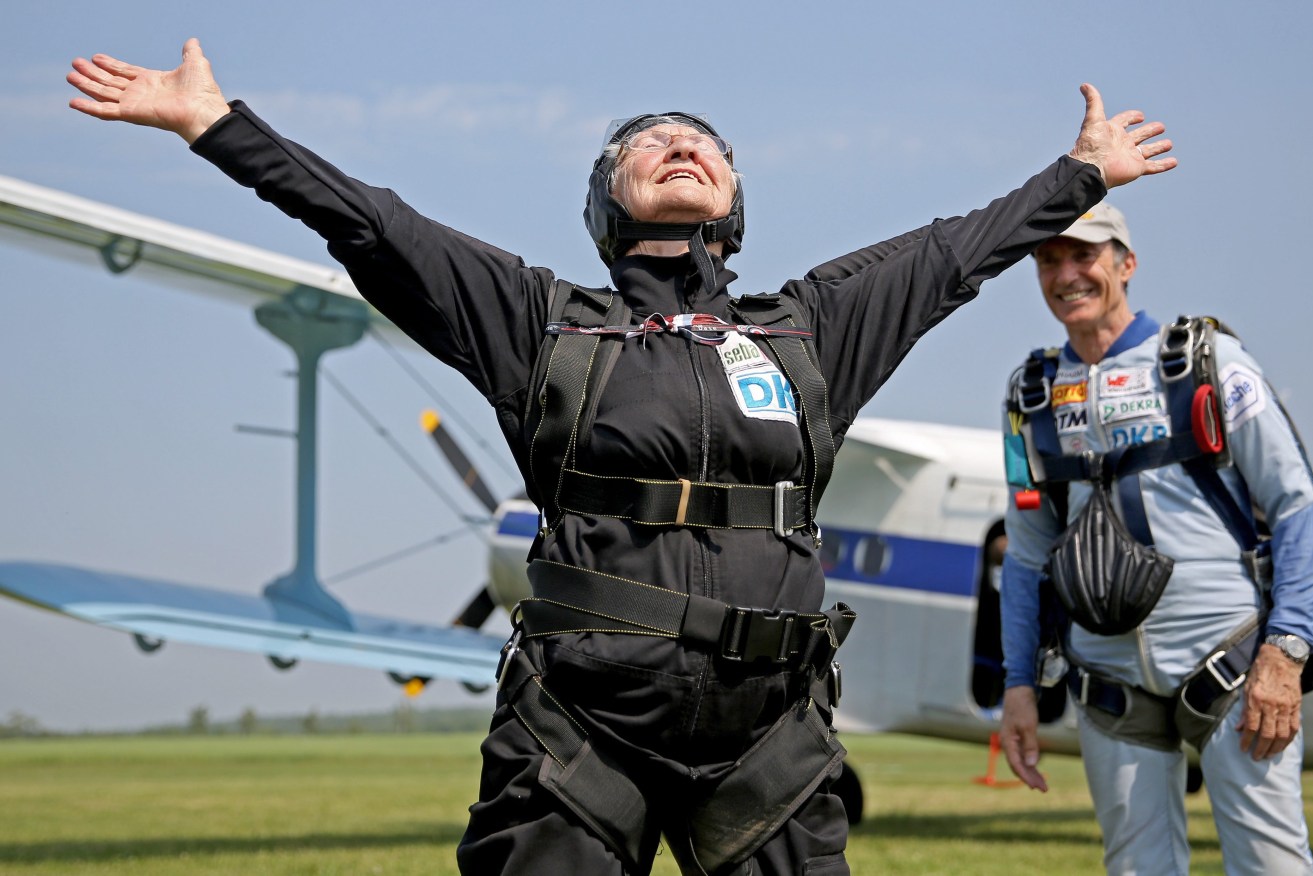Baby boomer clichés aren’t helping older South Australians
It’s time for the media, advertisers and aged care providers to jettison tired and often inaccurate stereotypes of baby boomers.

According to stereotype, baby boomers are either lonely and isolated or jumping out of planes. Photo: EPA/Jan Woitas
There tend to be two stereotypes about older people. There is the image of a frail, lonely person relinquishing their independence and, at the opposite end of the spectrum, there is the energetic grandparent who rides a motorcycle and jumps out of planes. The two polar-opposite typecasts are alarmingly misrepresentative of most of the ageing population.
The reality is most people over the age of 65 are not represented by either of these depictions commonly used by advertisers, the media and many aged care providers. On the surface, this may seem like an innocuous situation. but it can lead to major gaps in the provision of services to people as they age and can also be damaging to people’s self-esteem.
Relying on ageist stereotypes, whether it is baby boomers or millennials, is a disservice to everyone especially when it comes to providing care services.
In order to better meet the needs of our ageing population, we need to acknowledge the variety of circumstances faced by older South Australians. So where do we start?
Firstly we need to dispel the myth that all baby boomers are well-educated, affluent and articulate. This is a narrow and naïve view of a group of people who are incredibly diverse.
It is time we acknowledge that there are more baby boomers not represented by this stereotypical view than those who are. For every baby boomer that fits the aforementioned description, there are another three or four who do not identify with it at all.
There many people aged in their 60s and 70s who did not benefit from free tertiary education, struggled to hold-down a full-time job, faced discrimination or experienced severe health issues. There are many older people who do not have disposable incomes, have never travelled overseas or have never been able to own their own home.
When we think about the baby boomer generation, whether it is from a policy level or just as fellow human beings, we need to recognise personal circumstances such as the 70-year-old widow barely making ends meet or the 80-year-old gay man who is alone and retreating back into the closet.
From conversations with older people in the community, it is clear that many feel invisible in society because they do not identify with the images of older people they are bombarded with on a daily basis.
It is not uncommon for someone who is 70 to have been out of work since hitting 50 due to ageism.
This is acutely felt by people from diverse social groups: those who are culturally and linguistically diverse, LGBTI and First Australian communities, and also those experiencing financial hardship.
The latter is a growing issue, with more and more South Australians living day-to-day on an aged pension and struggling to make ends meet. We’re all faced with increasing costs that are stretching household budgets across the state and making it tougher for many older South Australians to live well.
Take electricity prices for example. If you consider for a moment how rising costs affect someone on an average wage then imagine how they affect a 70-year-old living on the aged pension. The outcomes are potentially devastating especially come mid-summer.
It is not uncommon for someone who is 70 to have been out of work since hitting 50 due to ageism. If they have been on the Newstart allowance during this time then the likelihood is that any savings they had have been eroded because the allowance has not increased more than two decades – not even by CPI.
The problem is only increasing with the number of people aged 55 to 64 on Newstart rising by more than 55,000 in less than five years. There have been reports of people living on as little as $40 per day after paying for basic necessities such as electricity and water.
So what is the answer?
We need to start by breaking down ageist stereotypes and celebrating our diversity. We need to do this as individuals, but the media and advertisers also have an important role to play in the portrayal of older people.
Aged care providers, governments and businesses also need to better understand diversity within our older generation especially when it comes to the provision of services because one-size does not fit all. Tailoring services to meet individual needs rather than using a broad-brush approach leads to far better care outcomes.
The bottom line is we need to work collaboratively towards creating a sustainable future community where we respond to the affluent baby boomers while also recognising and investing in the safety net for the less wealthy or the marginalised.
David Panter is the chief executive of aged care provider ECH.




